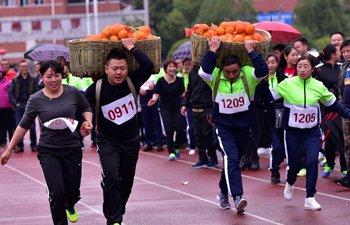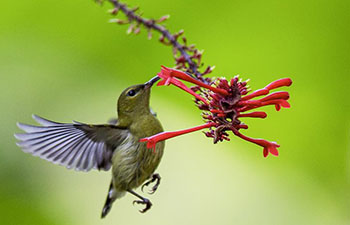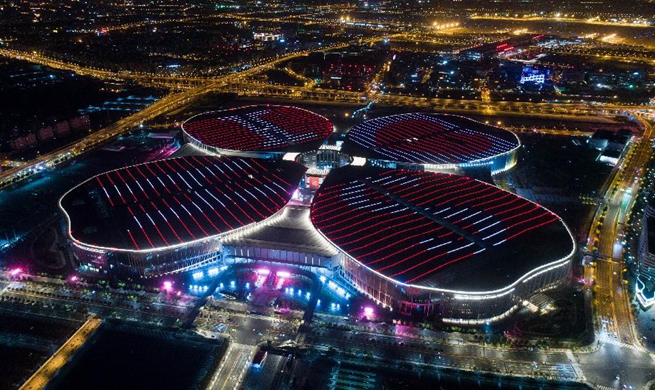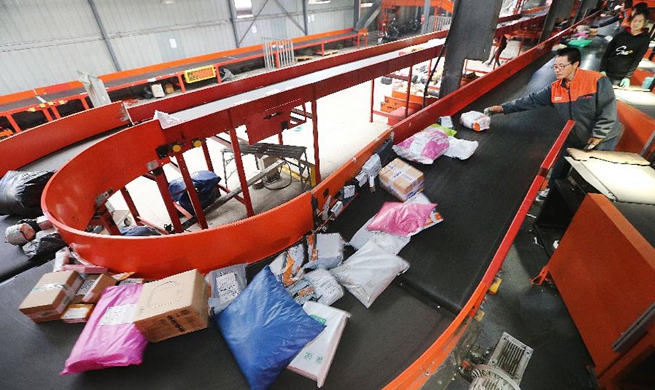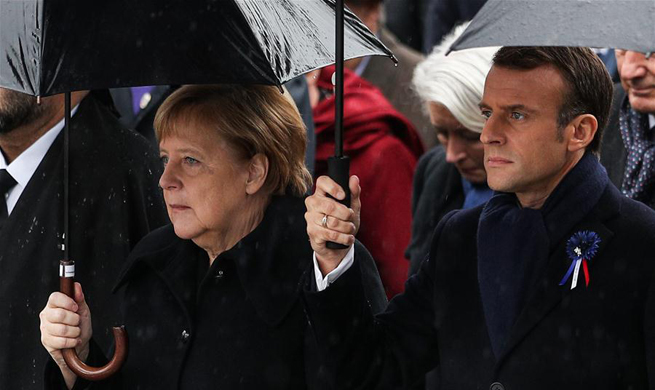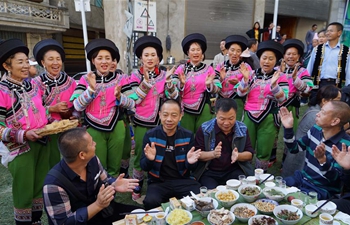JUBA, Nov. 12 (Xinhua) -- China's successful poverty alleviation model credited for uplifting tens of millions from poverty has inspired South Sudanese journalists who hope their government replicates positive lessons from Beijing.
Richard Jale, 26, news editor of the local Juba Monitor newspaper, was among a group of four news editors who have just returned to Juba after attending a forum for media columnists and commentators from Africa in China.
The editors and columnists learned various poverty alleviation models and how media helps shape public policy on poverty.
Jale said that on visiting the mountainous Guizhou Province, located in the southwestern part of China, they came face-to-face with reality on how China has managed to uplift thousands from poverty with the help of positive media rallying communities around public policy.
He told Xinhua that the media in South Sudan needs to work with government to help on poverty alleviation by positively communicating government initiatives and policies to the people.
According to him, the journalists were taken to a place demonstrating poverty alleviation achievements in Guizhou. The local officials told them the place used to be very poor but the government had come in to support them.
Now a majority of the local population have improved household incomes and some families even own cars, Jale told Xinhua in Juba, adding that this has also prevented locals from migrating to other cities in search for jobs.
Looking back on his visit to the province, he added that the policy of pairing model which involves rich companies helping poor communities and rich cities helping poor villages by the Chinese government, has worked amazingly to get people out of poverty, which can be used to great effect in South Sudan.
China's development has been achieved due to popular public support toward government policy, Jale said, adding that the South Sudan authorities badly need to turn around the situation as the country hopes to recover from the effects of the over four years of conflict since 2013.
"The attitude of our people is very different from that of the Chinese and yet we are endowed with resources like vast land for agriculture, but access to land remains a big problem, holding back our agricultural potential," he disclosed.
He added that the complex land ownership system in South Sudan exacerbates poverty as many poor people can not gain access.
Guizhou is one of the poorest provinces in China but it is rich in natural, cultural and environmental resources and is one of the most diverse provinces.
Jale said that one of the most significant lessons South Sudan can take from China is providing subsidized education from nursery to vocational level for the underprivileged population because this will help create employment for the majority of youth.
"I think we need a lot of technical education, because it's the gateway on reducing poverty in our communities. We don't have many skilled people," he said.
He also said that South Sudan needs to strengthen the rule of law like China to curb the endemic corruption.
The three-week trip to China that Jale took includes more than 30 media practitioners from African countries.
"The Chinese government is improving lives through policies like building decent housing for the poor, distribution of cows to households and also they have made vocational training for free targeting mostly children from poor families," another journalist Riak Maker, 32, editor-in-chief of the Independent Newspaper, said.
Maker said that South Sudan can adopt some policies which are implemented in China but should first improve the security situation in the country.




